When is the Army Physical Fitness Test? Find Out Here!
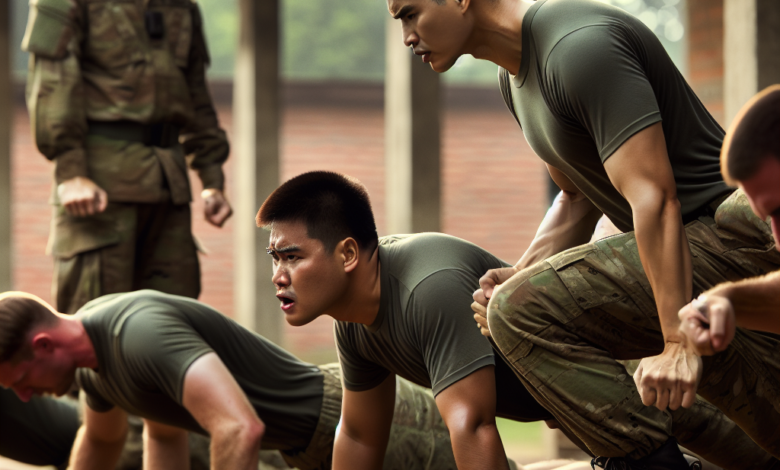
The Army Physical Fitness Test (APFT) is a critical component of military training and readiness. Designed to assess the physical abilities and endurance of soldiers, the APFT ensures that all personnel meet the necessary fitness standards to perform their duties effectively. Typically, the test includes three main events: push-ups, sit-ups, and a timed two-mile run. Each event is scored individually, and participants must achieve a minimum score in each to pass the test.
This rigorous evaluation not only helps maintain the physical readiness of the troops but also instills a sense of discipline and resilience. The standards are tailored to different age groups and genders, making it a fair assessment across the diverse military population. Regular testing ensures that soldiers are always in peak condition, ready to face the physical demands of their roles.
If you’re preparing for the APFT or simply curious about what it entails, understanding the structure and requirements of the test is crucial. For more in-depth information and tips on how to excel in each event, explore more at Muscle Theory.
Annual Testing Periods for APFT
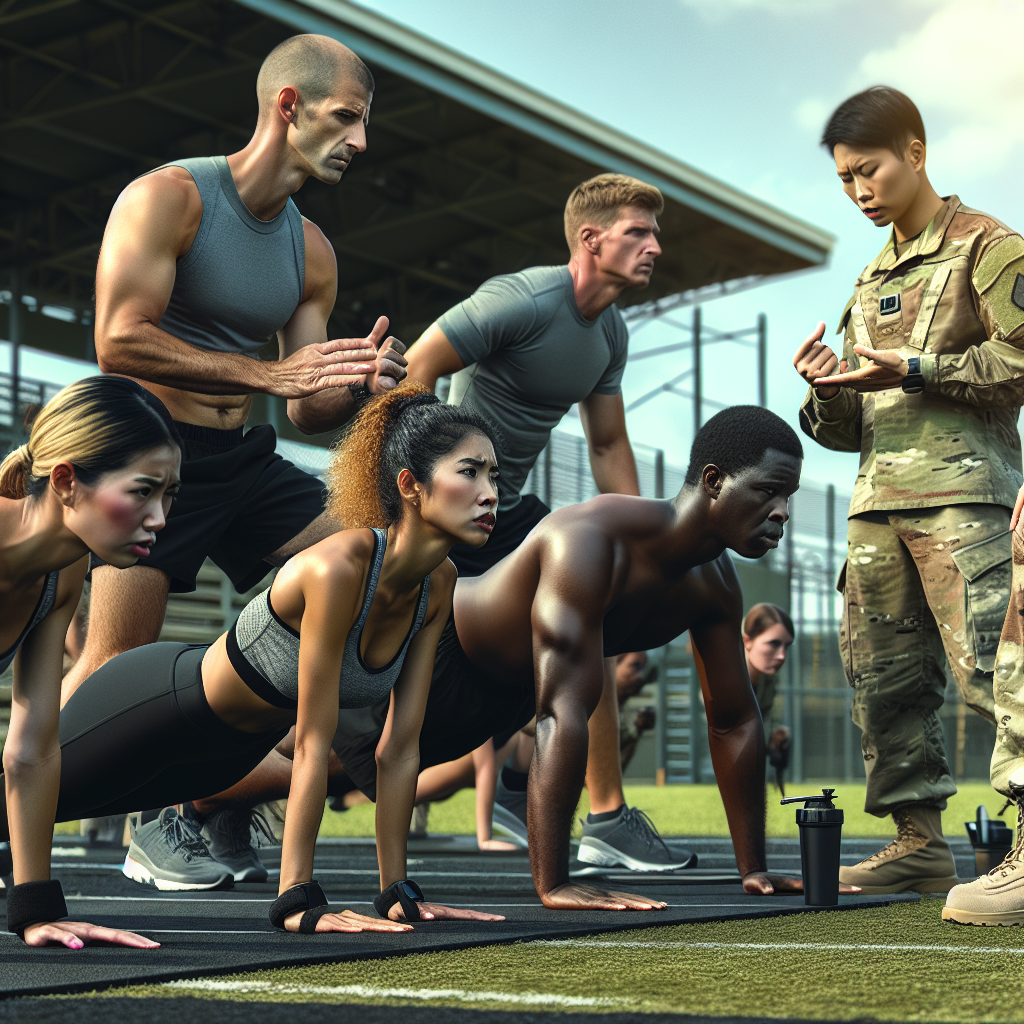
The annual testing periods for the Army Physical Fitness Test (APFT) are strategically scheduled to ensure that soldiers remain in optimal physical condition throughout the year. Typically, the APFT is administered twice annually, once in the spring and once in the fall. This biannual schedule allows for continuous monitoring of physical fitness and provides soldiers with ample time to prepare between tests.
Spring testing often occurs between April and May, while fall testing usually takes place between October and November. These periods are chosen to avoid the extreme weather conditions of summer and winter, ensuring that the tests are conducted in more moderate and safer climates. Commanding officers may also schedule additional tests as needed, especially for units preparing for deployment or returning from missions.
Soldiers are usually given advance notice of the test dates, allowing them to tailor their training and conditioning programs accordingly. This preparation period is critical, as maintaining a consistent fitness regimen can significantly impact performance on test day. Understanding the annual testing schedule helps soldiers stay focused and motivated, ensuring that they meet the required standards and maintain their readiness for any mission.
Components of the Army Physical Fitness Test
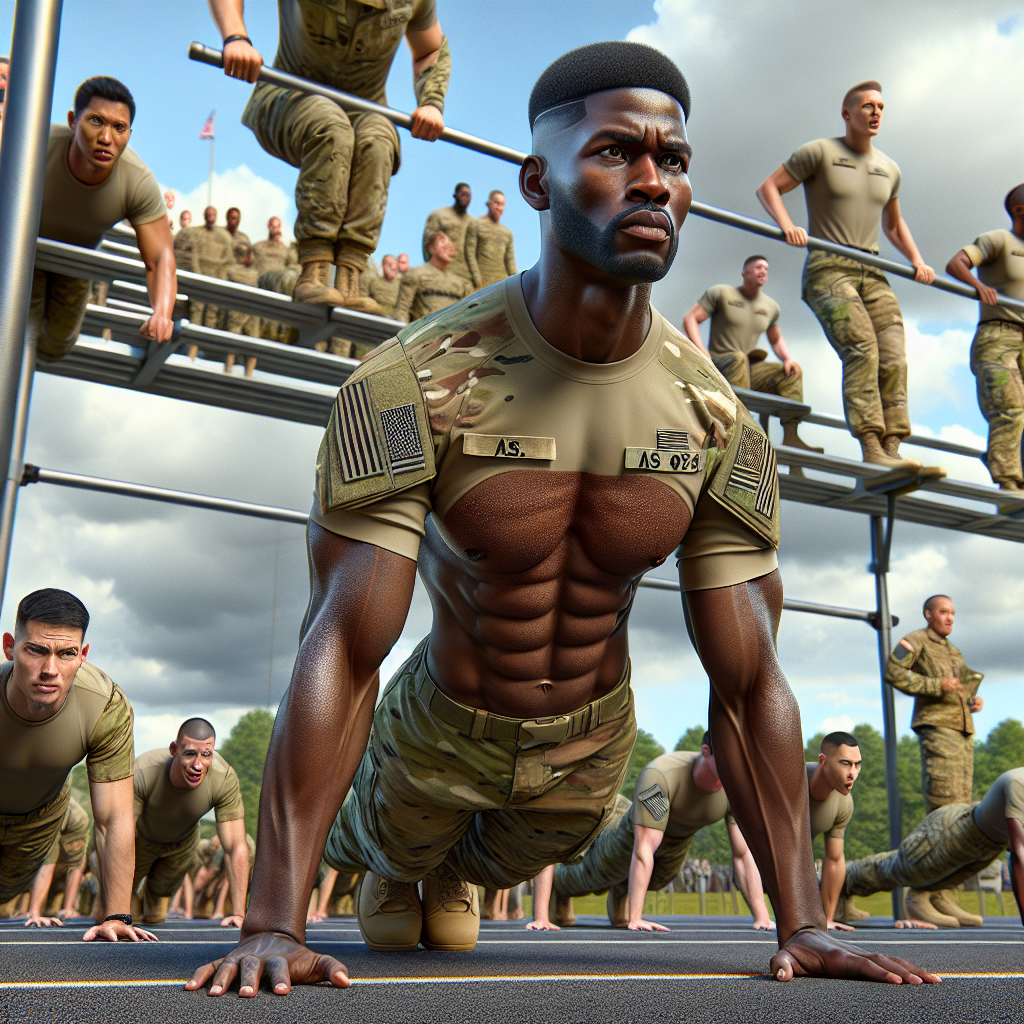
The Army Physical Fitness Test (APFT) comprises three main components designed to assess a soldier’s overall physical fitness: push-ups, sit-ups, and a two-mile run. Each component targets different aspects of fitness, ensuring a comprehensive evaluation of a soldier’s physical capabilities.
Push-Ups: This component measures the upper body strength and endurance of the soldier. Participants are required to perform as many push-ups as possible within a two-minute timeframe. Proper form is crucial, as only correctly executed push-ups count towards the final score.
Sit-Ups: The sit-up test evaluates the core strength and endurance. Similar to the push-ups, soldiers must complete as many sit-ups as they can in two minutes. The exercise must be performed with proper technique to ensure accuracy and effectiveness in measuring the soldier’s core fitness.
Two-Mile Run: This cardiovascular endurance test requires soldiers to complete a two-mile run in the shortest time possible. The run assesses the aerobic capacity and overall endurance of the individual. Performance in this component is crucial as it reflects the soldier’s ability to sustain physical activity over a prolonged period.
Each component is scored individually, and the combined scores determine the overall fitness rating of the soldier. To pass the APFT, soldiers must meet the minimum required scores in all three components. By understanding and training for these specific exercises, soldiers can better prepare themselves to achieve high scores and maintain their physical readiness.
Importance of the APFT in Military Careers
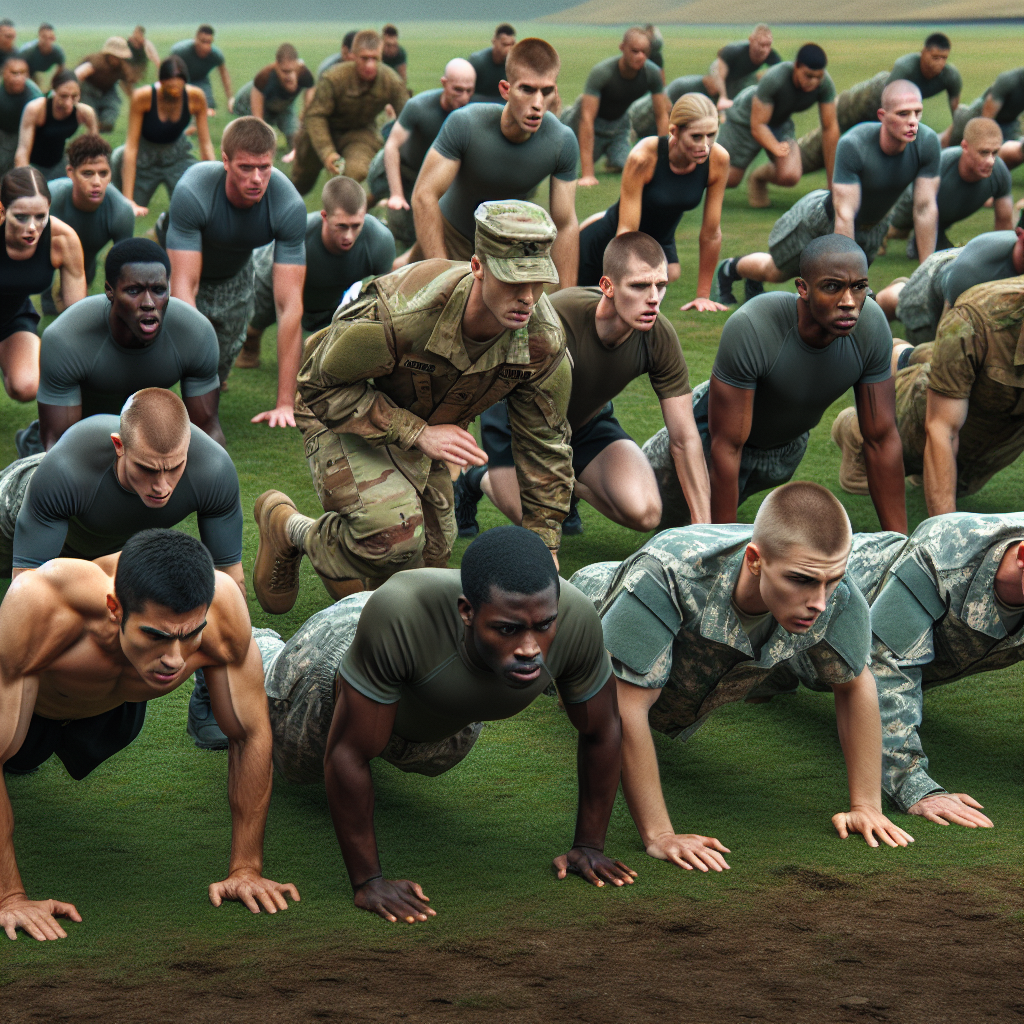
The Army Physical Fitness Test (APFT) holds significant importance in military careers, serving as a benchmark for evaluating a soldier’s physical readiness and overall health. Its impact extends beyond mere assessment; it plays a crucial role in career progression and operational effectiveness.
Firstly, the APFT is a mandatory requirement for all soldiers, and passing the test is essential for maintaining active duty status. Soldiers who fail to meet the minimum standards are subject to remedial training and may face administrative actions, which can hinder their career advancement.
Secondly, the APFT score is a key factor in promotions and assignments. Higher scores can lead to better opportunities, such as selection for elite units, specialized training programs, and leadership positions. In a competitive environment, a stellar APFT performance can set a soldier apart from their peers and pave the way for a successful military career.
Moreover, the APFT promotes a culture of physical fitness within the military. Regular preparation and training for the test encourage soldiers to maintain a high level of fitness, which is essential for the demanding physical tasks they may face in combat and other operational scenarios. A fit and healthy force is more resilient, capable, and ready to respond to various challenges.
Lastly, the APFT fosters discipline and personal responsibility. Soldiers are encouraged to take ownership of their physical fitness, setting goals, and striving to improve their performance. This mindset of continuous self-improvement is not only beneficial for the individual but also enhances the collective strength and effectiveness of the military.
In summary, the APFT is more than just a fitness test; it is a critical component of military life that influences career trajectories, operational readiness, and the overall well-being of soldiers. By understanding its importance, soldiers can better appreciate the value of maintaining peak physical condition throughout their military service.
Preparation Tips for the APFT
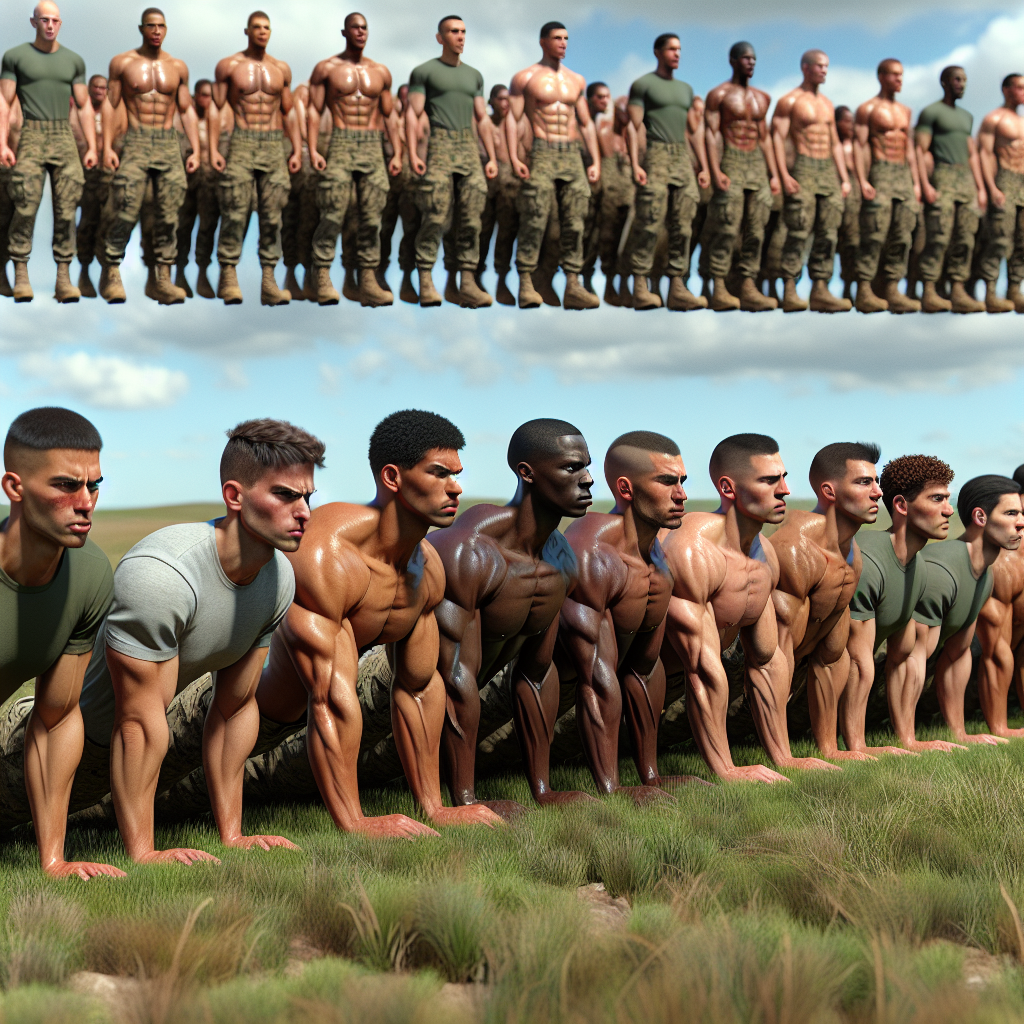
Preparing for the Army Physical Fitness Test (APFT) requires a strategic approach to ensure peak performance on test day. Here are some essential tips to help you ace the APFT and achieve your best score:
1. Develop a Training Plan: A well-structured training plan is crucial. Focus on the three main components of the APFT: push-ups, sit-ups, and the 2-mile run. Allocate specific days to each exercise and gradually increase intensity and volume.
2. Practice Proper Form: Correct form is vital for maximizing your performance and avoiding injuries. For push-ups and sit-ups, ensure you follow the Army’s standards for proper execution. Practice regularly to build muscle memory and efficiency.
3. Incorporate Cross-Training: While focusing on the APFT components is essential, incorporating cross-training can enhance overall fitness. Activities like swimming, cycling, and weightlifting can improve cardiovascular endurance and muscular strength.
4. Prioritize Recovery: Adequate rest and recovery are just as important as training. Ensure you get enough sleep, stay hydrated, and incorporate stretching and foam rolling into your routine to prevent injuries and promote muscle recovery.
5. Maintain a Balanced Diet: Nutrition plays a significant role in physical performance. Consume a balanced diet rich in lean proteins, complex carbohydrates, and healthy fats. Avoid processed foods and stay hydrated to fuel your body effectively.
6. Simulate Test Conditions: To reduce test-day anxiety and improve performance, simulate the APFT conditions during training. Practice the full test sequence, including the timed run, to familiarize yourself with the pacing and effort required.
7. Track Your Progress: Regularly monitor your progress by recording your performance and setting achievable goals. Adjust your training plan as needed to address weaknesses and celebrate improvements.
By following these preparation tips, you can build the strength, endurance, and confidence needed to excel in the APFT. Remember, consistency and dedication are key to reaching your fitness goals and advancing in your military career.
Conclusion and Final Thoughts on APFT
Successfully preparing for and passing the Army Physical Fitness Test (APFT) is a significant milestone in a soldier’s career. The APFT not only measures physical fitness but also demonstrates a commitment to maintaining high standards of health and readiness. By understanding the test’s requirements, adhering to a structured training plan, and implementing effective preparation tips, you can meet and exceed the standards set by the Army.
It’s important to remember that the APFT is more than just a test—it’s a reflection of your overall physical condition and discipline. Consistent training, proper nutrition, and adequate recovery are essential components that contribute to your success. Additionally, staying informed about any updates or changes to the test format is crucial, as this ensures you are always prepared for what lies ahead.
As you continue your fitness journey, keep in mind the value of perseverance and dedication. Every push-up, sit-up, and mile run brings you one step closer to achieving your goals. The discipline you develop during your preparation for the APFT will benefit you not only in your military career but also in all aspects of life.
We hope that the insights and tips provided in this article have equipped you with the knowledge and motivation needed to excel in the APFT. For more information on fitness routines, nutrition advice, and recovery techniques, be sure to explore more at Muscle Theory. Your journey to peak fitness and military excellence starts here!



